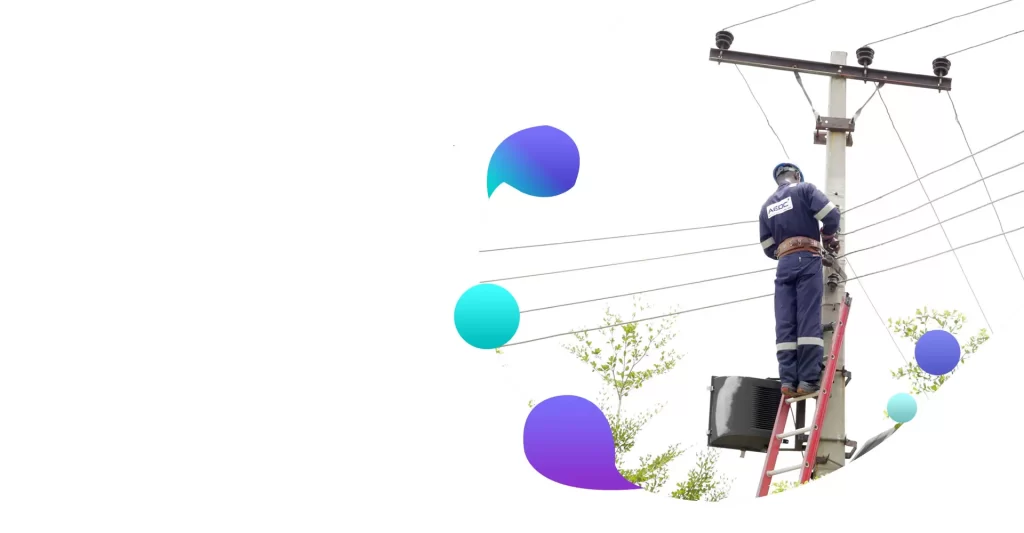
NewsNow has reported that the Abuja Electricity Distribution Company (AEDC) has shown defiance in the aftermath of being instructed to reimburse customers who were incorrectly billed following the recent tariff increase.
It is worth noting that AEDC had imposed the electricity tariff hike designed for Band A customers on all customers, regardless of their bands.
Subsequently, after receiving complaints from Nigerians, the Disco issued an apology to its customers, attributing the error to a system malfunction.
This led the Nigerian Electricity Regulatory Commission (NERC) to impose a fine of N200 million on AEDC for misapplying the approved tariff order.
In addition to the fine, the Commission directed AEDC to refund affected customers by April 11 and submit a report by April 12.
However, despite the deadline passing, NewsNow investigations reveal that AEDC has failed to reimburse all wrongly billed customers.
Various customers confirmed that they have not received an energy token refund from the company.
For instance, Ezekiel Umanah (Meter No: 45862856286), a resident of Dutse, Zone 6, highlighted that he is yet to receive a refund from AEDC after being charged the Band A tariff instead of Band B on April 3, 2024.
Another customer, Loveth Idugu (Meter No: 45701255536), expressed dismay at not receiving a refund weeks after being billed incorrectly.
Despite directives from NERC, AEDC customers like Ezekiel and Loveth are still awaiting their refunds, raising concerns about compliance with regulatory orders.
Speaking exclusively to NewsNow, Commissioner of Legal, Licensing & Compliance at NERC, Barr Dafe Akpeneye, encouraged customers facing delays in refunds to report such cases to the Commission for necessary action.
An anonymous source within AEDC indicated that the company’s priority currently is feeder alignment rather than addressing refunds for customers subjected to billing errors.
Responding to inquiries from NewsNow, Kunle Olubiyo, President of the Nigerian Consumer Protection Network, acknowledged that some customers impacted by AEDC’s billing inaccuracies are yet to be reimbursed, highlighting challenges faced by electricity consumers in the wake of the tariff hike.
According to Olubiyo, the disparity in power supply post-tariff increase has disproportionately affected consumers in lower tariff bands, exacerbating the gap between the privileged and underserved.
Meanwhile, the national secretary of the Network for Electricity Consumers Advocacy of Nigeria, Uket Obonga, emphasized the importance of adhering to the conflict resolution procedures outlined in the 2023 Electricity Act for addressing grievances with AEDC and other Discos.
Guidelines for Energy Token Refunds for Affected Customers
Obonga outlined steps that affected AEDC customers can take to secure energy token refunds:
“Affected customers are urged to follow the prescribed Conflict Resolution procedures established by NERC under the amended Electricity Act.
“The resolution process may require patience as customers are advised to formally lodge complaints through AEDC’s designated channels and copy NERC and the Federal Competition and Consumer Protection Commission (FCCPC).
“Persistence in following the outlined procedures is essential to expedite the resolution of refund discrepancies with AEDC and regulatory bodies.”
Insights from an Expert
Wumi Iledare, Professor Emeritus and Executive Director of Emmanuel Egbogah Foundation, emphasized the necessity for NERC to enforce penalties on Discos exhibiting unethical business practices to safeguard consumer interests.
Iledare underscored the significance of progressively implementing tariff adjustments to ensure equitable access to electricity, proposing alternative measures like in-kind credits for customers to mitigate refund delays.
He stressed the importance of full metering to enhance transparency and combat power theft, ultimately facilitating sustainable power distribution and investment in the sector.
For Iledare, a balanced approach to tariff regulation is vital to align consumer expectations with industry realities and promote inclusive energy access in Nigeria.
